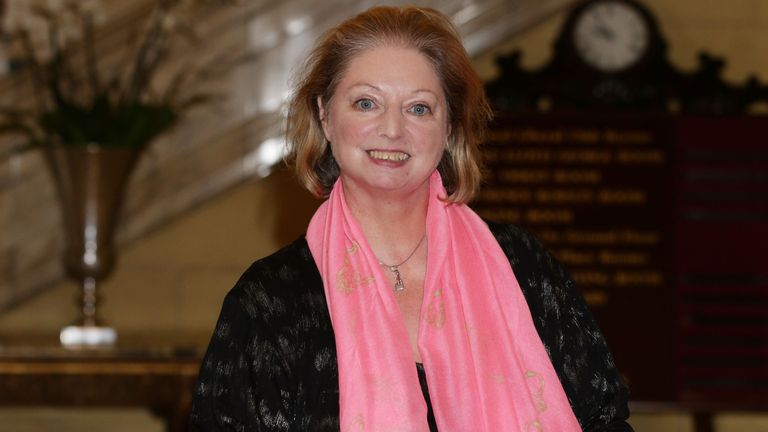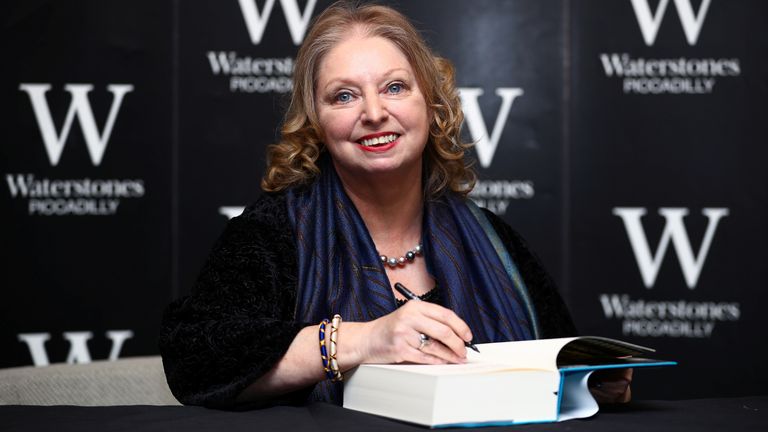For Wolf Hall and its follow-up, Bring Up the Bodies, Dame Hilary Mantel was awarded the Booker Prize. When a trilogy’s conclusion, Mirror, and the Light, was released in 2020, it immediately shot to the top of the fiction bestseller list.
Dame Hilary Mantel, the winner of two Booker Prizes and author of the monumental Wolf Hall trilogy, passed away at the age of 70.
In a statement, her publisher 4th Estate books said: “We are heartbroken at the death of our beloved author, Dame Hilary Mantel, and our thoughts are with her friends and family, especially her husband, Gerald.
“This is a devastating loss and we can only be grateful she left us with such a magnificent body of work.”
The Derbyshire-born British writer won the Booker Prize for Wolf Hall, and its sequel, Bring Up the Bodies.
The conclusion to the trilogy, Mirror, and the Light, was published in 2020. It was an instant number one fiction best-seller and longlisted for Booker Prize the same year, winning the Walter Scott Prize for Historical Fiction, which she first won for Wolf Hall.
The trilogy, which charts the rise and fall of Thomas Cromwell in the court of King Henry VIII, made her an international star.
It has been translated into 41 languages, with more than five million worldwide sales.
The first two books were adapted for the screen and broadcast on BBC Two in January 2015, with the six-part series earning substantial critical acclaim, pulling in an average audience of more than four million viewers.
Directed by Peter Kosminsky, the series starred Mark Rylance as Thomas Cromwell, Damian Lewis as Henry VIII and Claire Foy as Anne Boleyn.
At the 2016 TV BAFTAs, it won best drama series, while Rylance picked up the award for best actor for his performance. At the Golden Globes the same year, it was named the best mini-series.
Paying tribute, publishers HarperCollins described Dame Hilary as “one of the greatest English novelists of this century”.
“Her beloved works are considered modern classics. She will be greatly missed.”
Her writing career spanned decades, from the publication of her first novel Every Day Is Mother’s Day in 1985, to becoming the film critic of the Spectator magazine in 1987 before she was regularly winning literary prizes for her books.
Nicholas Pearson, former publishing director of 4th Estate and Dame Hilary’s long-term editor revealed she had been working on a new book.
“Only last month I sat with her on a sunny afternoon in Devon, while she talked excitedly about the new novel she had embarked on.
“That we won’t have the pleasure of any more of her words is unbearable. What we do have is a body of work that will be read for generations. We must be grateful for that. I will miss her and my thoughts are with her husband Gerald.”
Harry Potter author JK Rowling shared a tweet from 4th Estate Books announcing Mantel’s death, writing “We’ve lost a genius.”
When she won her first Booker prize, Dame Hilary famously said she would spend the money on “sex, drugs and rock ‘n’ roll”. The second time she joked about rehab.
She was not a stranger to controversy and was outspoken on a number of subjects including the monarchy – and Brexit, saying in 2021 that she hoped to gain Irish citizenship, leave the country, and become “a European again”.
In 2013 she famously spoke about Kate Middleton – now Princess of Wales – being forced to present herself publicly as a personality-free “shop window mannequin”.
The following year in an interview she recalled fantasising about the murder of former British prime minister Margaret Thatcher, which she later wrote as a short story.
She was also forthright in her wish for the UK to become a republic, describing “the howl phenomenon of monarchy” as “irrational”.
The writer also criticised the Catholic Church in 2012, saying it was no longer “an institution for respectable people”.
The author experienced chronic illness throughout her life, having a severe form of endometriosis that took many years to diagnose and left her unable to have children.
Bill Hamilton, Dame Hilary’s agent at literary agency A.M. Heath, said it had been the “greatest privilege” to work with her throughout her career, adding she would also be remembered for “her capacity to electrify a live audience”.
He said: “Her wit, stylistic daring, creative ambition, and phenomenal historical insight mark her as one of the greatest novelists of our time.”
“Emails from Hilary were sprinkled with bon mots and jokes as she observed the world with relish and pounced on the lazy or absurd and nailed cruelty and prejudice,” he said.
“There was always a slight aura of otherworldliness about her, as she saw and felt things us ordinary mortals missed, but when she perceived the need for a confrontation she would fearlessly go into battle.
“And all of that against the backdrop of chronic health problems, which she dealt with so stoically. We will miss her immeasurably, but as a shining light for writers and readers, she leaves an extraordinary legacy. Our thoughts go out to her beloved husband Gerald, family, and friends.”


